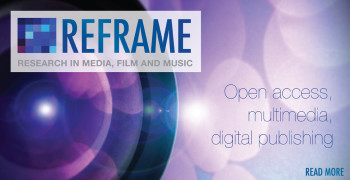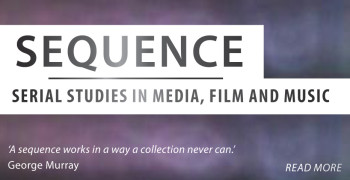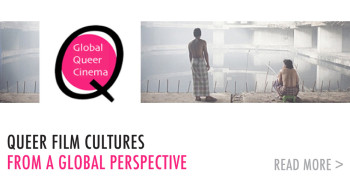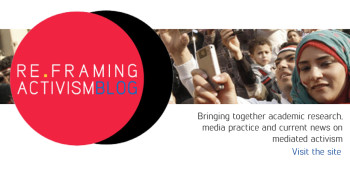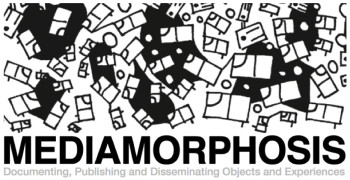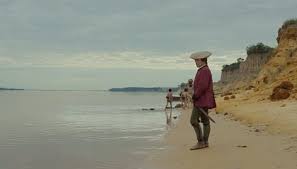
SLACextras 19.2 Mediático takeover
Welcome to this SLACextras takeover of Mediático which, in the spirit of SLACextras, features additional material to accompany the print journal Studies in Spanish and Latin American Cinemas 19.2. SLAC 19.2 was edited by Gina Herrmann (University of Oregon) and Isabel Jaén Portillo (Portland State University) and published in summer 2022. This SLACextras takeover of Mediático features some of the keynotes and presentations from Cine Lit 9 International Conference of Hispanic Film and Fiction “Cine-Lit 9,” which took place in Portland, Oregon in March 2019.
We are delighted to present four Cine-lit posts at Mediático. Firstly, an excellent essay by Barbara Zecchi, which focuses on recent films directed by young female filmmakers centred on the representation of older women. Professor and Head of the Film Studies Program at UMassAmherst, Zecchi examines the use of blur as a cinematic technique suggesting that these out-of-focus images displace what Woodward has called “the youthful structure of the gaze” and substitute it with a visuality that she define sas “preosbyoempathic”.
Secondly, a thought provoking piece by Deborah Martin, which takes as its starting point B Ruby Rich’s ” ‘revisionist history’ of the male-associated New Latin American Cinema” ‘An/Other View of the New Latin American Cinema’ (1997). Professor of Latin American Film and Culture at University College, London, Martin explores the ways Rich’s ideas have emerged and are continuing to emerge in the work of contemporary scholars of Latin American women’s filmmaking and Latin American filmmakers, particularly Lucrecia Martel.
Thirdly, and continuing with this SLACextras takeover of Mediatico we present Maria B. Clark’s compelling examination of a feminine gaze and its representation through the cinematography of the fantastic in Las vidas posibles/Possible Lives (Sandra Gugliotta, 2006) and La marea/The Tide (Diego Martínez Vignatti, 2007). Clark argues, that while the fantastic provokes uncertainty for the spectator by subverting the ground rules of realism, it functions as an enabling structure for the expression of feminine desire in Las vidas posibles and provides access to feminine subjectivity defined by motherhood in La marea. Maria B. Clark is professor emerita of Spanish at Carson-Newman University in Tennessee. She specializes in contemporary short fiction by women writers from the Southern Cone with feminist and psychoanalytic approaches to the fantastic and cinematographic strategies of the fantastic in Argentine film. She has published in the Journal of Gender and Sexuality Studies, Ciberletras, Semiosis, Cine y literatura, Inti, Studies in Twentieth Century Literature, Letras femeninas, and contributed book chapters to Narrativas del miedo and Films with Legs. Her current research includes melodrama and gender issues in films of the New Argentine Cinema.
Fourth, we are delighted to continue with a rousing manifesto* in which Deborah Shaw Professor of Film and Screen Studies at the University of Portsmouth, reflects on the growth of, and critical response to, women’s filmmaking in Latin America. Professor Shaw is founding co-editor of Transnational Screens, author of Contemporary Latin American Cinema: Ten Key Films, Continuum Publishers, (2003), The Three Amigos: The Transnational Filmmaking of Guillermo del Toro, Alejandro González Iñárritu, and Alfonso Cuarón, Manchester University Press (2013) and co-editor of The Transnational Fantasies of Guillermo del Toro, Palgrave Macmillan, (2014), Latin American Women Filmmakers: Production, Politics, Poetics, I.B.Tauris (2017), and Sense8: Transcending Television Bloomsbury Publishers (2021)
*Published in Spanish as 2018 – ‘Cómo estudiar el cine de mujeres iberoamericanas: un manifiesto’ in Scholz, Annette and Álvarez, Marta, Cineastas emergentes. Madrid/Frankfurt: Iberoamericana/Verwuert.
Finally, for this SLACextras takeover takeover, Guy Wood’s excellent post exploring the figure of the wild women in José Luis Borau’s Furtivos (1975) and Luis Berenguer’s El mundo de Juan Lobón (1967). It analyses how, in film and novel, both Martinas connect with the age-old legacy of wild women, and like their predecessors, are as frightening as they are subversive. Guy H. Wood is an emeritus Professor of Spanish at the State University of Oregon, author of two monographs (La caza de Carlos Saura: Un estudio and Las armas de Luis Buñuel), numerous articles on the works of contemporary Spanish novelists, playwrights, poets and filmmakers. He is also a co-founder of the Cine-Lit Project.
We have one more post in this excellent series – Forthcoming! Watch this space
- Envejecimiento y desenfoque: la visualidad ‘presbioempática’ en el cine intergeneracional español, Barbara Zechhi (UMass Amherst)
- Latin American women’s filmmaking: redefining the political; genealogies; aesthetics by Deborah Martin (University College, London)
- When the woman looks in contemporary Argentine fantastic films Maria B Clark (Carson Newman University)
- Approaches to Studying Latin American Women’s Filmmaking: a manifesto (Deborah Shaw, University of Portsmouth)
- De mujeres salvajes: Las Martinas de Furtivos/Poachers (Borau, 1975) y El mundo de Juan Lobón/The World of Juan Lobón (Berenguer, 1967) (Guy Wood, State University of Oregon)

